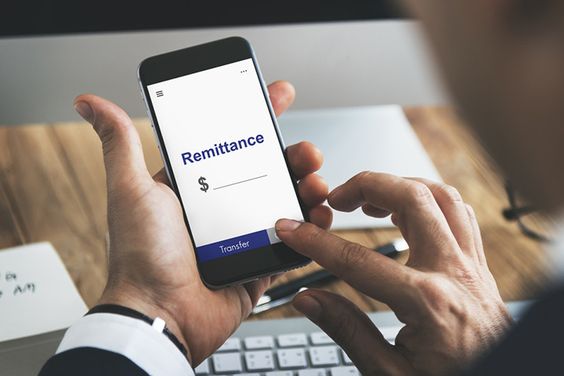TCS on Foreign Remittance is a tax provision under the Income Tax Act, introduced in October 2020. It applies when an individual transfers funds outside India under the Liberalised Remittance Scheme (LRS). This system helps the government monitor overseas transactions and ensure tax compliance. The TCS rate on foreign remittance depends on the purpose of sending money, such as education, travel, medical treatment or investments. Initially, the rate was 5% above ₹7 lakh in the financial year, but in 2023, the revised rules increased the rate on overseas tour packages and investments. Furthermore, in Budget 2025, the exemption limit was raised to ₹10 lakh, education loans were fully exempt, and 20% TCS was confirmed for investments and tour packages, strengthening monitoring. TCS is not an additional cost; it can be claimed as a credit while filing the income tax return.
TCS Charges on Foreign Remittance
When money is sent abroad from India, the government imposes a Tax Collected at Source (TCS). This tax is part of an effort to track large transactions and ensure tax compliance. Here's a concise breakdown of how TCS charges are applied to foreign remittances:
Recommended Reading
- Threshold Limits:
- TCS is applicable only if the total amount remitted abroad exceeds ₹10 lakh in the financial year.
- Standard Rate:
- For education and medical purposes, a 5% TCS applies on the amount exceeding this limit.
- Without PAN:
- If the sender does not provide a valid PAN, the TCS rate increases to 10%
- Education & Travel:
- For self-funded education and medical remittances, 5% TCS applies above ₹10 lakh. When financed through a specific education loan, no TCS is charged. For overseas tour packages and investments, 20% TCS is levied above ₹10 lakh.
How Does TCS on Foreign Remittance for NRI Work?
In 2025, the Indian government revised the rules for TCS on foreign remittance under the LRS scheme. Let’s take the case of Mr Sharma, who wants to send money abroad for his daughter's education:
- Remittance Amount: $50,000 (approx ₹35.5 lakh)
- LRS Limit: Within the USD 250,000 annual limit, so no RBI permission is needed.
- Exemption Limit: ₹10 lakh per financial year.
- If education is funded: No TCS is changed even above ₹10 lakh.
- If self-funded: TCS of 5% applies on ₹26 lakh (₹36 lakh - ₹10 lakh)
- TCS Collected: ₹1.32 lakh (5% of 26.5 lakh, deducted by the bank.
- Claiming TCS: Mr Sharma can adjust this amount while filling ITR or claim a refund if excess tax was collected.
TCS on Foreign Remittance under LRS

Starting July 1st, 2023, the TCS structure will see a significant change as announced by Indian Finance Minister, Nirmala Sitharaman in the 2023 budget proposal. The proposed amendment will increase the TCS rates for foreign remittances and the purchase of overseas tour programs from the current rate of 5% to 20%.
If you're sending money abroad, it's crucial to be aware of the TCS rates on foreign remittance, as they will impact your transaction.
- Under the LRS scheme, any foreign remittance for any purpose is subject to TCS deduction at the rate of 5% (if PAN is produced) or 10% (if PAN is not produced).
- For remittance towards repayment of education loans taken from banks, TCS is collected at a rate of 0.5%.
- If PAN is not furnished in the above cases, the TCS rate levied is 5%.
- The sale of overseas tour packages is also subject to TCS deduction at 5% (if PAN is produced) or 10% (if PAN is not produced).
- Unlike the LRS, there is no minimum exemption limit on the amount for tour package sales.
Budget 2025: Impact on TCS on Foreign Remittance

Budget 2023 introduces major changes to the TCS for foreign remittance, including increased rates on travel and investment. These rules were later revised in 2025, offering relief for education and higher exemption limits. The table below will show the comparison:
| Purpose of Remittance | Threshold | TCS Rate Before Budget 2023 | TCS Rate Rfter Budget 2023 | TCS Rate in 2025 (Latest) |
| Education (via loan from a financial institution) | ₹7 lakh | 0.5% above ₹7 lakh | 0.5% above ₹7 lakh | 0% exempt even above ₹10 lakh |
| Education (self-funded) | ₹7 lakh | 5% above ₹7 lakh | 5% above ₹7 lakh | 5% above ₹10 lakh |
| Medical treatment abroad | ₹7 lakh | 5% above ₹7 lakh | 5% above ₹7 lakh | 5% above ₹10 lakh |
| Foreign travel packages | No threshold | 5% above ₹7 lakh | 20% ( no threshold) | 5% up to ₹10 lakh, 20% above ₹10 lakh |
| Other remittances (investments, gifts, maintenance, etc.) | ₹7 lakh | 5% above ₹7 lakh | 20% ( no threshold) | 20% above ₹10 lakh |
| General foreign remittance (not in the above categories) | ₹7 lakh | 5% above ₹7 lakh | 5% above 7 lakh | 5% above ₹10 lakh |
TCS on Foreign Remittance Applicability

The Government has made provisions for a separate tax deduction on remittances for overseas tour programs. Hence, Tax Collection at Source (TCS) is not required in this case, provided the buyer is a government remittance.
This provision is a welcome relief for both buyers and sellers, as it simplifies the taxation process and eliminates the need for TCS collection. It also highlights the Government's commitment to promoting the tourism sector by encouraging foreign travel. Overall, this move is expected to boost the tourism industry and make the process of taxation smoother for everyone involved.
TCS on Outward Remittance: Section 206 (1G)

Section 206 (1G) of the Income Tax governs TCS on outward remittance under the Liberalised Remittance Scheme (LRS). It ensures proper monitoring of money sent abroad and tax compliance. The points below will explain properly:
- Applicability:
- Section 206 (1G) applies when a person sends money abroad under the LRS, covering education, medical treatment, travel, investment, or gifts. TCS is deducted by authorised dealers (Banks).
- Exemption Limit:
- According to the Budget 2025, no TCS is charged if the yearly outward remittance is up to ₹10 lakh. Beyond this limit, TCS rates vary depending on the purpose of the remittance.
- Rates for Education & Medical:
- For education and medical expenses exceeding ₹10 lakh, the TCS rate is 5%. If the education remittance is funded through a loan from a financial institution, TCS is fully exempt from tax.
- Rates for other Purposes:
- For foreign travel packages or other remittances like investments or gifts, TCS is 20% on amounts above ₹10 lakh. Some categories may attract 5% for limited thresholds.
- Tax Credit and Refund:
- TCS under Section 206 (1G) is not an additional tax. The amount collected can be adjusted against income tax liability or claimed as a refund during return filing.
How can an NRI Save on TCS on Foreign Remittances?

Many NRIs worry about the additional tax on foreign remittance under Section 206(1G) of the TCS. With proper planning and awareness of the Finance Act, this tax can be reduced. Below are a few points to keep in mind:
- Choose the Right Purpose Code:
- Banks apply different TCS rates depending on the purpose of the remittance. Selecting the correct code under RBI guidelines can lower TCS liability significantly.
- Prioritise Education Loan:
- Under the Finance Act 2020 and subsequent amendments, education remittances, financed through recognised loans, are fully exempt from TCS, unlike self-funded transfers, which attract higher rates.
- Time Transfer Strategically:
- Plan remittances across different financial years. Sending before and after March 31 helps avoid crossing the ₹10 lakh annual exemption limit in Section 206 (1G).
- Avoid High TCS Categories:
- Tour packages and overseas investment attract 20% TCS. Using NRO/NRE accounts for genuine family support or education keeps the rates at 5% of NIL.
- Track Refunds & Adjustments:
- TCS collected is adjusted against income tax. Claiming refunds or setting it off properly ensures no double taxation under Indian Tax law.
TCS on Foreign Remittance for Education
TCS on foreign remittances for education applies when parents send money abroad for studies. Rates, exceptions and rules depend on whether funding is self-financed or through an education loan. The points below will explain properly:
- Exemption Limit:
- According to the 2025 budget, no TCS is charged if the education remittances remain within the ₹10 lakh annual exemption limit.
- Education Loan Benefit:
- Under Section 206 (1G), education remittances funded through recognised loans attract only 0.5% TCS, ensuring a lower cost for students abroad.
- Self-Funded Education:
- If not loan-funded, a TCS of 5% applies on remittances above ₹10 lakh, making correct planning essential for parents and guardians.
- PAN Requirement:
- A valid PAN is mandatory. Without PAN, TCS doubles to 10%. Always update your PAN with the bank to avoid paying unnecessary fees.
- Claiming Credit:
- TCS is not an extra cost. Students or parents can claim a credit/refund while filing the Indian Income tax returns later.
How to Avoid TCS on Foreign Remittance?
When sending money abroad, dealing with Tax Collected at Source (TCS) can be a concern. Here are straightforward ways to minimise TCS on foreign remittances:
- Utilise NRO to NRE Transfers: Non-Resident Indians (NRIs) can transfer funds from their Non-Resident Ordinary (NRO) account to Non-Resident External (NRE) or foreign bank accounts. Amounts up to USD 1 million annually are exempt from TCS under Section 206C(1G).
- Opt for Exempted Purposes: Certain transactions, like remittances for education or medical purposes exceeding ₹10 lakh, incur a lower TCS rate of 5%. Ensure your remittance falls under such exempted categories to minimise TCS deductions.
- Stay Informed: Keep abreast of changes in tax regulations, especially amendments related to TCS on foreign remittance. Being aware of updates can help you plan your transactions more effectively and potentially reduce TCS liabilities.
- Seek Professional Advice: Consult tax experts or financial advisors to understand the intricacies of TCS regulations and explore personalised strategies to minimise TCS deductions based on your specific financial situation and remittance needs.
How can NoBroker Help?
Taxation at the source of income is a necessary measure to prevent tax evasion and ensure that the government receives its due taxes. While it may seem like an extra burden, the benefits of this process cannot be ignored.
In cases where tax has been collected but there was a valid exemption available, the excess amount can be easily claimed as a refund. It is important to comply with taxation laws and fulfil our obligations as responsible citizens to contribute to the development and growth of our nation. NoBroker’s legal experts can assist with TCS on Foreign Remittance by leveraging its expertise in Real Estate and Property Laws. Interested individuals can easily get in touch with NoBroker for assistance by visiting their website or contacting their customer service team.

